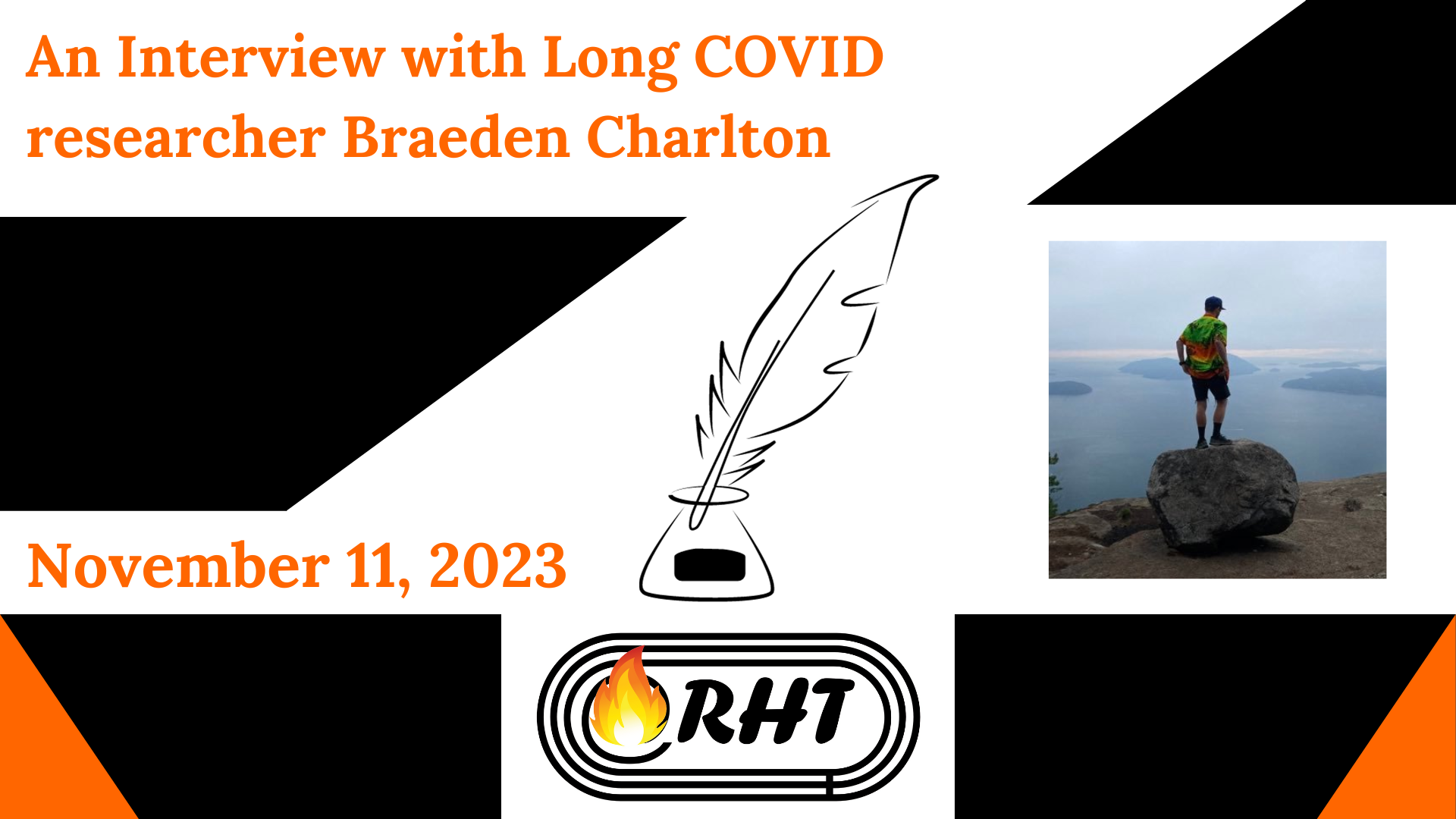Braeden Charlton is a PhD candidate at Vrije Universiteit, Amsterdam where he conducts his studies in the Department of Behavioural and Movement Sciences.
1) Briefly, could you give a short summary of what your research experience has been since the beginning of the pandemic?
The research we have focused on has been understanding the exercise intolerance that occurs in long COVID (long haul COVID), and the symptom of post-exertional malaise, which is the worsening of symptoms after either physical or mental stressors. Our lab has focused mainly on skeletal muscle adaptations in these individuals, but we have also started to coordinate with other groups looking into autoimmunity in the disease.
2) What are some of the key findings you have seen from Long COVID researchers?
The biggest thing, and one that cannot be stated enough, is that this isn’t a psychological disease. From our own results, we see that the long COVID patient tissue is completely different in structure to the healthy individual/recovered person. This is seen at a macro (just visually looking at the tissue) to the micro (mitochondria, fibre type of muscles) level.
3) Have you been surprised at all by public health measures and recommendations that have ensued given what you know about long COVID?
This is a difficult one for me, as I know the Dutch system more intimately at this point. However, I will say that I am surprised (in both countries) the amount of non-masking that occurs around hospitals and at-risk populations. We are still far from knowing the “Why” of which individuals contract long COVID, but it’s very clear that any healthy individual is not immune from this.
3) When it comes to athletes, what are your suggestions for avoiding COVID infection?
The biggest reduction is limiting high risk behaviours (i.e. partying, large group functions, etc.). While we want the world to return to normal, we see infection rates going up in nearly every country again, and with that we are also getting more long COVID patients from prior waves. Being outside, being active, eating well, sleeping well, and reducing contacts is likely going to keep you the healthiest. As we’ve seen from other waves, this may not necessarily be enough, so also being proactive when you do feel sick in getting properly tested and reducing your risk of transmitting it to someone else will help others around you in the long term too.
4) Do you have any suggestions for athletes who do get sick?
As mentioned above, be proactive. Sometimes the mindset of an athlete is to gut it out, because that’s going to be lost training time/competition time. But the risk of getting perpetually sick is far worse than taking the 7-10 days off after infection compared to an entire year. When you know you’re sick, rest. This is true outside of COVID as well, the body doesn’t respond well to training stimuli when you’re sick, and so in training harder/more and not taking the rest, you’re more likely simply to set yourself back weeks/months.
5) What are some strategies you would like to see implemented by public health moving forward?
The biggest one I would see is better air filtration systems. We’ve seen that masks are good to a degree, but lots of data points towards having better filtration systems as being a better long term goal. I would love to see more of a push to address the continuation of the COVID situation, however the Canadian healthcare system (as many others) are struggling to find enough personnel since the beginning of the pandemic. However, this is far less easy to address in the acute sense, but the talk hasn’t really begun, so we also need to start the conversation to bolster our health care support.

